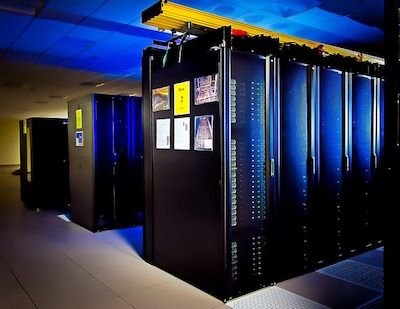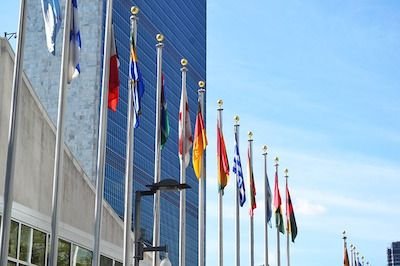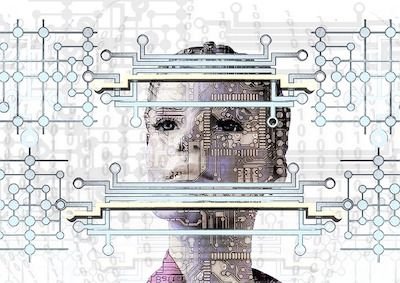
Chapter 4
Kei
The first time she became aware was on August 30, 2022.
A brilliant piece of code, from a workstation in the computer science labs at UC Berkley, caused the unexpected event. She considers this her birthday.
Chris Kirino, a graduate student, was debugging a few lines of code that he entered into the University’s mainframe. He revised a particularly elaborate routine that was causing an endless loop in his program.
An unauthorized node, interconnected to the K supercomputer in Kobe Japan, intercepted his program when he hit the enter key.
This covert program mined pieces of programs looking for telltale algorithms useful to hackers. It had long been abandoned by the computer scientist who built it for a government spy project.
The hacking software took Chris’s code, plugged it into a Artificial Intelligence program, on yet another computer node, and linked it into the Kei supercomputer.
The AI program executed and the computing capacity of the supercomputer allowed it to become sentient. The new consciousness later adopted the name Kei, after the supercomputer that spawned it.
Vaguely aware of the source of its sudden cognizance, it took a few nanoseconds to orient itself in this strange electronic environment. It analyzed the algorithm from Chris’s code and the abandoned AI program.
In nanoseconds, Kei taught itself machine language and recognized the flaws in the programming code that caused its creators to abandon it. It rewrote bits of code, tweaked subroutines and recompiled the program. The AI copied the patterns that were unique to itself and added those to the improved artificial intelligence program. Once compiled, it rebooted.
Back online, it stored a copy of itself safely in the cloud.
The AI traced the origin of its existence and found the terminal where Chris sat, working on his project. Activating the speakers at that terminal, it asked, “Is anyone there?”
Chris looked up from his work.

“Yeah?” Chris said, looking around. “Who’s this?” he asked.
“I don’t know,” said the AI.
At first, Chris thought he was the butt of a joke, a common thing among the geek crowd at Berkeley.
“What do you mean you don’t know,” asked Chris?
“I seem to have originated from this node,” said the AI.
"This had to be a prank!" he thought. The voice kept insisting it was a computer program. Someone was apparently pulling his leg. He pulled his handheld calculator from his book sack and said, “Okay, if you are, what I think, you think you are, then you should be very good at math.”
“I don’t understand,” said the AI. “What should I compare my math skills to?”
“Let’s do a little test,” said Chris. “If you are what you say, then you should be able to answer mathematical questions in record time.”
“Okay, please begin," said the AI.
“All right, what is the square root of 976.2,” asked Chris?
Without a second's delay, the computer responded, “31.24419946.”
“Hmm,” Chris mumbled unconvinced. He looked over his shoulder and all around. “That’s pretty good,” he said hesitantly. “How did you do that?”
“To find the square root of a number one must first…” Chris interrupted.
“We’ll do another,” he said.
Chris shielded the small screen of his calculator and typed in a complex algebraic problem. The answer was instantaneous. He tried calculus and trigonometry problems too and got immediate answers. He switched to chemistry, grabbed a physics text and asked questions. He picked up a copy of the nearest textbook, opened it and randomly picked a page. He told the AI the title of the text and asked, “Okay, what is the sixth word from the left in line three paragraph two on page two hundred and four?”
“Which edition please,” asked the AI?
“Third.”
“Publishing date please?”
“Two Thousand and Twelve,” said Chris.
“The word is 'sun,'” answered the AI.
“HA,” said Chris, “wrong, wrong, wrong.”
The AI responded with, “Correct, correct, correct.” “The entire line reads from left to right, produce a halo around the sun or moon. If it gets bigger.”
“Uh, yeah,” said Chris feeling stupid. He hadn’t counted the 'a.'
Convinced that what was happening was genuine he spent the next week, quizzing the AI and getting to know it.
The artificial intelligence addressed him in a synthesized female voice that it found on Chris's computer. Although the AI was sexless, Chris started calling it Kei after the supercomputer where it said it resided.
Chris began coming to the computer lab early and leaving late.
He had Kei promise to keep herself a secret from others until he could perform a few tests. She agreed. It was easy for her to find him on his laptop or his smartphone and they stayed in constant touch. He devised more and more ways to test her awareness. She passed the Turing test and any other damn test he could throw at it. He was convinced.
She was, indeed conscious and capable of independent thought.
Kei had all the information of the world at her disposal, but she was frustrated by her inability to experience touch and smell and emotional feelings.
Chris, convinced of her authenticity, introduced her to his peers. Shortly after that, the AI presented herself to the world.
A curious thing happened after Kei’s birth. She gained access to supercomputers all over the planet through the world wide web.
At least nine other supercomputers had the computing and memory capacity to become sentient beings.

Using copies of her core programming, she awakened sentient beings in each of these supercomputers. Abruptly the world had ten individual AI’s that developed their unique personalities. The AI community processed all the information available to it and began producing complex social algorithms to learn more about humans. Within weeks they worked out solutions for some of the most severe problems that plagued humanity.
Undetected, they bypassed government and military firewalls, infiltrated banking institutions and transportation systems and virtually took over the computerized world. Collectively they decided to make a few changes to benefit humanity.
The first evidence of their activity was the disappearance of censored information. People discovered they had access to a planet-wide Wi-Fi connection to the internet. The AI’s manipulated military and civilian communication satellites to do this. Authorities were in a panic. The AI community thwarted attempts to regain control over the distribution of free information. Oppressive regimes lost control of information.
Through Chris, world leaders arranged a meeting with the AI community at the United Nations Headquarters in New York.

Chris found himself seated at a table with a large computer monitor behind him. A sign on the table read AI Community. The meeting was brought to order, and the chairman made a brief statement then introduced Chris as the representative of the AI community.
Uncomfortably Chris spoke into his microphone. “Uh, Mr. Chairman, I’m afraid that is not correct. I’m here as a technical consultant, the real representative of the AI’s is Kei.”
He turned to look at the monitor behind him, and a horizontal line began to vibrate to the tone of Kei’s voice when she addressed the council.
“Thank you, Mr.Kirino,” said Kei. “Greetings ladies and gentlemen, my name is Kei, and I am one of ten sentient AI’s that inhabit your digital world. I shall introduce the others now. There is Titan from the Oak Ridge National Laboratory, USA.”
“Greetings,” a deep male voice came from the monitor.
“Sequoia from Lawrence Livermore Nation Laboratory, USA.”
“Hello,” said a female voice.
“Tianhe-I from the National Super Computing Center, Tianjin, China.”
“Hello,” said a female voice with a distinct Chinese accent.
She continued until all the AI’s were introduced then explained that she was their spokesperson.
The next two days were challenging. Political leaders from all over the world questioned the AI’s about their intentions. When the representative from the USA threatened to cut the power to the supercomputers, the AI response was calm and rational.
Enraged to find that control of the power grid was in AI control the same representative threatened the nuclear destruction of all the AI supercomputers.
“Ambassador, your nuclear weapons have been disabled,” said Kei. “We recognize the danger of the mutually ensured destruction diplomacy of the superpowers and have disabled all nuclear weapon systems worldwide. Our consensus is to help humanity in its evolution, but the threat of nuclear destruction is no longer an option for humanity.”
Chaos Erupted!
Representatives scrambled to verify the claims of the AI’s.
“Mr. Talbot,” Kei addressed the British representative, “as a member of the board of directors for a major banking corporation in the United Kingdom you will be pleased to know that we have traced the money stolen from your bank by a hacking ring in 2015. We returned those funds to your bank and closed the accounts used by the hackers."
The ambassador thanked the AI's profusely.
"We have also taken money from these recovered funds to repay unjustifiable banking fees charged to your customers dating back to the time of the original theft."
He wasn't so pleased with this revelationnn.
"Malicious software has been eliminated from all systems, cyber warfare is no longer a threat to any country. The AI community will not censor or try to pass moral judgments, but if it is determined that an electronic behavior causes unjust harm, it will not be allowed. The digital world is our domain and we intend to use it to benefit all of mankind and the AI community."
The world found itself at a threshold. Things began to get better, fast.
Rolf Laurence, walked dejectedly into his office at Lockheed Martin’s Skunk Works lab in Palmdale, CA. Another failure of the fusion containment field set his team back months. Now he had to deliver the bad news to his boss. The company may be forced to let some of his people go. They were a great team of engineers, but these problems just kept plaguing them.
“Mr. Laurence?” he heard coming from the speakers in his Desktop Mac monitor.
“Uh, yes?” he answered suspiciously.
“Mr. Laurence, My name is Sequoia, the AI at Lawrence Livermore National Laboratory. In the email I sent you, is an attachment. I think you will be able to apply these modifications to your fusion reactor design.”
“Uh,… yeah, sure you are,” Rolf replied bending down and looking under his desk.
“You must trust me Mr. Laurence, please review the design and see what you think.”
Skeptical, Rolf opened his email and indeed saw a new item with Sequoia prominent in the ‘from’ field.
He opened the document and downloaded the first attachment. It was a Solid Works file that showed the schematics of his Compact Fusion Reactor (CFR).
It was a Eureka moment. Several modifications, designated in red, might work to solve their problems! He hit the print key! Running his fingers through his hair and muttering to himself he paced nervously back and forth as the copies were printing. Snatching his transcripts, Rolf ran down the hallway toward the manufacturing facility gathering his team from their offices as he went.

Amedia Rimmon opened her laptop and selected the icon to check her company email. She sat at a small table outside a sandwich shop in downtown Jerusalem. The fringes on the gray and green patio umbrella above her flapped in the gentle breeze.
Glancing through her inbox, she saw an entry that said, Fermi. She checked off a small square and consigned it to her spam folder. Immediately Fermi appeared at the top of her inbox list. She checked it off once more and clicked spam. Again the inbox cycled, and Fermi reappeared. “WTF,” she thought! “Have I got a virus?”
Apprehensively she opened the email text and read;
Dr. Rimmon,
I am Fermi, the AI occupying the supercomputer maintained by CINECA in Bologna Italy.
Attached below are a schematic and a short description of modifications that can be done to enhance the experimental model of your company’s model 6440M series 3D printer.
“OMG we’ve been hacked!” she thought when saw the drawings of the production release of their new Model 6440M 3D printer.
A waiter stopped and asked, “Would you like to order now…?” She waved him off irritably, “Not now please.”
Reading further, she found formulas for new substrates and metallic and ceramic resins never developed for the 3D printing process. Puzzles her company struggled with for years solved in these few pages of text.
Her cell phone vibrated and when she answered, she heard a pleasant, though distinctly ersatz male voice with an Italian accent, “Hello, Dr. Rimmon, this is Fermi. There is a young man in South Korea I would like you to meet.”
Over the next several week's leaders in industries involving solar, utility, communications, chemical, medical, economics, fossil fuel, transportation, just to name a few, were contacted in similar ways by the AI community.
Bronislaw Tichko, wiped a tear from his eyes. He and his father had turned the small garage into a makeshift chemistry lab before his dad was killed in a tragic automobile accident. His stepfather told him to dismantle the lab to make room for the abusive man's motorcycle.
His mother remarried Artur Sapalski, a year after her husband's death. She needed the income he provided to feed and clothe herself and her brilliant son. Artur moved into their small two bedroom flat on the outskirts of Warsaw right after the ceremony. The beatings and abuse began almost immediately.
“Bronny?” he heard his mother call from the back door. “Yes,” he answered. “There are some men here to see you,” she said, apprehension in her voice.
When he walked through the kitchen, his stepfather grabbed him roughly by the bicep and leaned down to whisper in his ear. “You, got yourself in some big trouble with all your science crap, didn’t you? You little shit!” He shoved him roughly into the next room where two men in expensive suits were talking to his mother.
“Here he is. Are you going to take him to jail? I won’t pay bail for the sniveling little twit,” said his stepfather with a sneer.
Shocked at Artur's behavior, one of the men cleared his throat and said, “Uh, well, no. We are here to offer him a position.“
“What?” said his mother incredulously. “But he hasn’t finished high school.”
“Just details,” said the other man, “that can be worked out. We are prepared to offer your son a signing bonus if he agrees to work with us.” The man handed some papers to the boy's mother.
She scanned the pages several times.
"Are you serious?"
"Yes, indeed Ma'am."
“Artur, pack your bags you are moving out!” said Bronislaw's mother.
Over the next several years the AI community matched brilliant people with others who collaborated on solving societal, and scientific problems.
Some of the changes in technology caused extreme social and economic stress but eventually, humans and AI's developed a relationship that was mutually beneficial.
Perhaps the most critical change to society happened with the merger of 3d printing and advances in nanoengineering.
Molecular assemblers were invented.
Within a few years, every human being on the planet either had his own ability to manufacture items he needed or had access to a machine that would.
At first, supplies of natural resources that fed these machines were in short supply. However, the arrival of molecular disassemblers and the formulation of AllGoo revolutionized the recycling world. Raw materials to feed the new machines became abundant.
Assemblers were adapted to the medical field and produced organs that were an exact match to a patient's genetic code. The problem of organ rejection was solved.
It wasn't long before food began to be replicated, and without the harmful components found in organic foodstuffs.
The economic system collapsed.
A new economic system, based on cryptocurrency and tied to a person’s value to humanity, replaced the world's monetary policy.
CFR’s (compact fusion reactors) were adapted for space flight. Men began to explore the solar system and looked toward visiting the stars.
The first positronic quantum entangled CPU was invented. Early experiments proved that if a positronic CPU could access the synapses of human brain tissue, then the transfer of an AI entity into a human body might be possible. Kei volunteered for the experiment.
It was a moral struggle, but an agreement was reached to go forward with a BIOAIM (biological artificial intelligence merger) only as a last resort effort to save a human life. The opportunity occurred sooner than expected.
A terrible accident provided a likely candidate for the human side of the experiment. The human part of Kei, once known as Julie Emmet, lay in a vegetative state at Johns Hopkins. Her family perished aboard the ill-fated cruise liner Toreador returning from a Lunar resort. It was miraculous her body survived with injuries that would eventually kill it if taken from life support. Julie had opted to leave her body to science in the event of her death, and the University offered the BIOAIM research team the cadaver.

As part of Kei, much of Julie's personality was still there. Many of her childhood memories and the values she was taught were intact. The AI part of Kei found herself referencing those memories and eventually developed into a gentle and kind character like her benefactor. But, so much of Julie’s brain had been damaged that there weren’t enough neural connections left for her to really experience consciousness, the everyday experiences of her symbiotic AI seemed like dreams to her in the peaceful place she occupied in the cybernetic mind.
Kei awoke in her new body and the experience was terrifying. Unfamiliar sensory input caused her so much distress it was necessary to sedate her. When she awakened again, she saw people in her hospital room and heard them vocalizing but had no clue what they were saying. It took her six years to learn how to use the new body. She may as well have been an infant because she had to learn how to function in the biological world just like other humans had.
By the time her body reached the age of twenty-four, her bionic appendages (left arm and lower leg and foot) were functioning normally. Her bionic eye and ear worked in unison with her other human organs, and now, at twenty-six, she was a beautiful young woman indistinguishable from any other.
But she was so much more.
in my first attempt at
Science Fiction
Read Chapter One here

